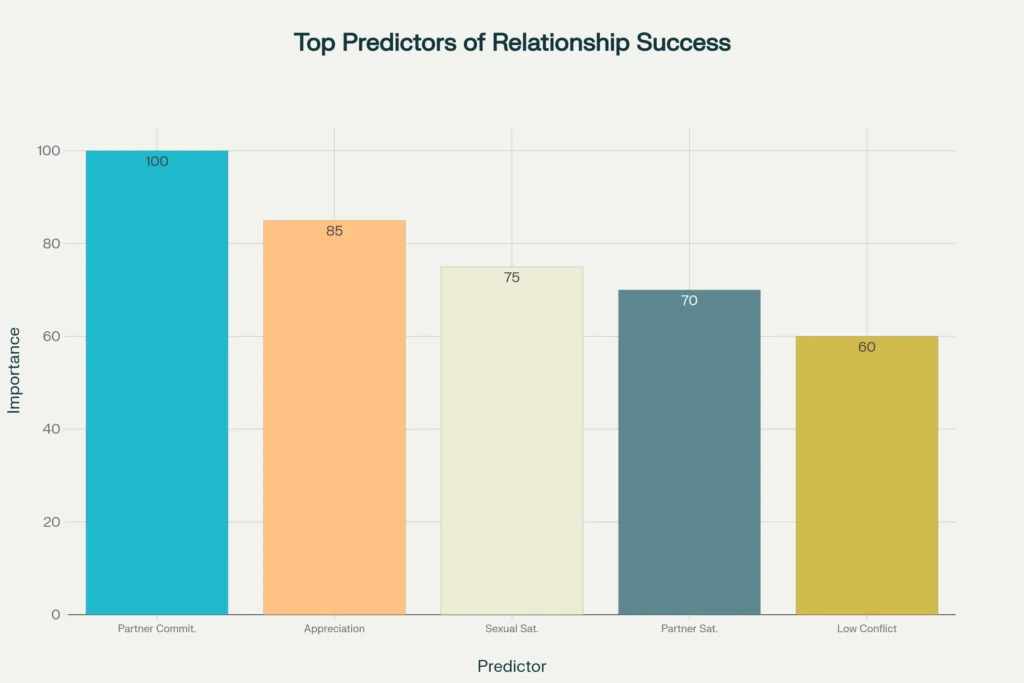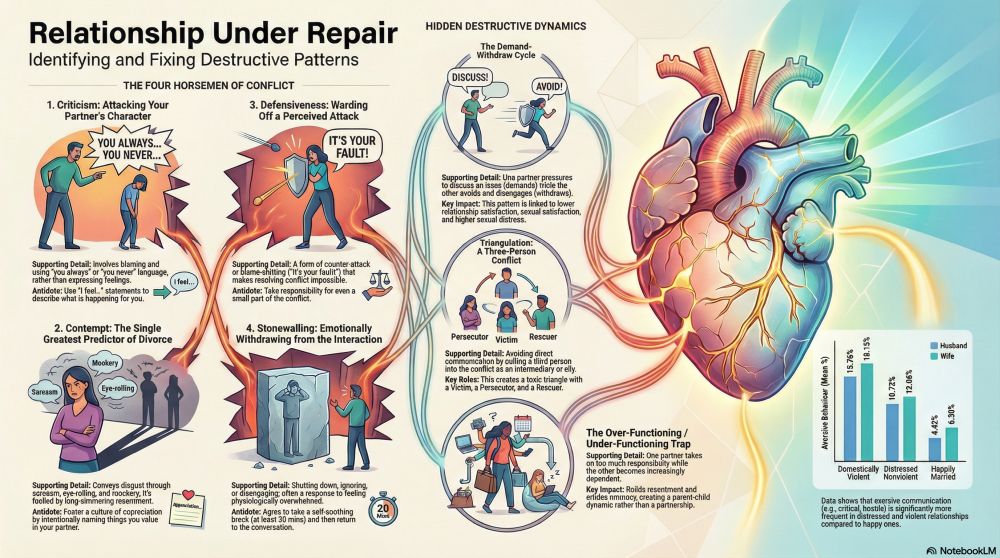Key Scientific Finding
The single strongest predictor of staying in love and maintaining a thriving long-term relationship is the perception that your partner is deeply committed. This means believing your partner wants the relationship to last, is invested in your shared future, and is unlikely to leave. Large-scale research, including a meta-analysis of over 11,000 couples, consistently finds that this perception outweighs other factors such as personality traits, age, or even the partner’s actual level of expressed commitment.
Top Predictors of Lasting Love
While perceived partner commitment stands out as the dominant predictor, several other relationship-specific factors also strongly influence sustained love:
- Appreciation: Regularly feeling and expressing gratitude for your partner.
- Sexual Satisfaction: Mutual fulfilment and contentment with the sexual aspect of the relationship.
- Perceived Partner Satisfaction: Believing that your partner is happy and content within the relationship.
- Low Conflict: Experiencing fewer, less intense disagreements, or managing them constructively.
These factors are empirically linked to higher relationship satisfaction and longevity across cultures and relationship types.
Visualising the Predictors
The bar chart below illustrates the relative weight of key predictors of sustained love, highlighting perceived partner commitment as the most influential factor.

Why Perceived Commitment Matters Most
- Emotional Security: Knowing your partner is committed builds safety and trust, enabling vulnerability and intimacy.
- Motivation for Investment: When both partners feel secure, they invest more effort, kindness, and generosity into the relationship.
- Buffer Against Stress: High perceived commitment helps couples handle external stressors and internal conflicts more effectively, reducing the risk of separation.
Supporting Research
- A landmark study using machine-learning methods found perceived partner commitment to be the top predictor of relationship quality—ranking above trust, support, or sexual frequency.
- Expressions of kindness and generosity correlate strongly with lasting love but are most effective when both partners feel secure in each other’s commitment.
- Studies also show that relationship-specific perceptions—such as how you view your partner’s commitment and satisfaction—predict outcomes more reliably than individual traits like age or personality.
Practical Implications
- Focus on Commitment: Consistently communicate and demonstrate dedication to your partner and the relationship.
- Express Appreciation: Small, genuine acts of kindness and gratitude reinforce positive perceptions and emotional security.
- Address Conflicts Early: Handle disagreements constructively to maintain trust and stability.
- Monitor Relationship Health: Regularly check in with your partner about their satisfaction and feelings of connection.


